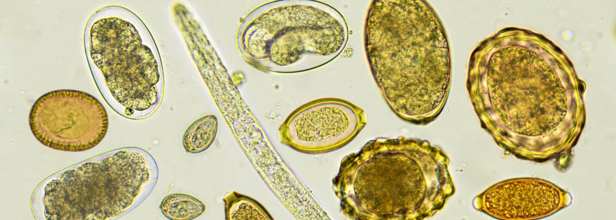
Credit: Canva
Why Are We Not Using Our Brains To Its Fullest Capacity?
If you've ever wondered whether we actually use all of the brain or not, science shows that we do use all of the brain, but most people don't use it to its fullest power. Recently, Dr Emily McDonald, a neuroscientist and brain expert, took to social media to suggest three reasons that limit us to use our brains to their maximum capacity.
The first thing that keeps people from operating at their fullest power is the default mode network of the brain. This network helps us maintain an identity or ego. Most people's default mode network keeps them stuck in loops because they identify with their current situation. Your brain doesn't help you achieve your goals; it helps you live in alignment with your identity. "This is why identity shifting is so powerful when you're trying to level up in life," she said.
Another huge factor that will keep you from using all of your brain power is stress. When you are stressed, the amygdala takes over, which limits you from accessing higher cognitive functions. It keeps you in survival mode, which literally limits your brain power. For the uninitiated, the amygdala is a part of the brain that regulates emotions, especially fear, anxiety, and rage.
Last but not least, most people are not using the power of intention to prime their brains to look for and act how they want. According to Dr Mcdonald, intention is your superpower, which should be used every day.
Does Intention Work?
Intention is the focused thought to carry out a specific action. These focused thoughts can influence not only non-living objects but also all forms of life, from single-celled organisms to humans. It is believed that intention works through the emission of light particles called biophotons. All living beings emit biophotons constantly, which help send instant signals within the body and to the outside world. These light particles are stored in the DNA inside our cells. When someone is unwell, the pattern of these emissions changes. A clear and strong intention creates a flow of electric and magnetic energy, producing an organized stream of photons. These intentions may work like precise frequencies that can even alter the structure of matter.
But It Only Works With Correct Timings
For the intention to be effective, timing is crucial. All living beings are connected and synchronized with Earth's magnetic energy. Research suggests that our thoughts can influence the environment. Phenomena like hypnosis, stigmata, and the placebo effect can be seen as examples of intention in action, where specific mental instructions affect the brain during altered states of consciousness. Cases of spontaneous recovery or healing from a distance in seriously ill patients show how powerful the will to heal can be. The healer’s intention, along with the patient's belief in the treatment, can significantly boost recovery.Why Do We Need A Brain?
While this question may sound basic, it is important to understand why is this organ important. Here are five functions that it serves:
1. Thinking and Decision-Making: The brain helps us reason, solve problems, and make choices in everyday life.
2. Controlling the Body: It sends signals to muscles and organs, managing everything from movement to heartbeat and digestion.
3. Memory and Learning: The brain stores memories and helps us learn new information, skills, and habits.
4. Emotions and Feelings: It processes emotions like happiness, fear, anger, and love, influencing our behaviour and reactions.
5. Senses and Perception: The brain interprets information from our eyes, ears, skin, nose, and tongue, helping us understand and respond to the world around us.

Image Credits: Canva
Morning Habits That Make Sure Your Cortisol Levels Stay Under Control Throughout The Day
Everybody has a unique way of going about their morning routine, while some people enjoy being up early, getting chores done before going about their day and others like sleeping till late for as long as they can and then rush through their routine to reach office on time.
Even from general observation, one can tell that the better way is to wake up early as rushing every morning seems very exhausting. Waking up early has a big impact on your hormones, especially cortisol. Keeping this rhythm steady is important for your overall health, and your morning habits play a key role in how well your body manages this hormone.
WebMD explains Cortisol is like your body's natural alarm clock and stress manager. When it's working right, it helps control your daily rhythm, like when you feel awake and sleepy. It when it's out of balance, it can cause problems. If you have too much cortisol for too long, you might feel anxious, gain weight, have high blood pressure, or struggle to sleep. On the flip side, too little cortisol can make you feel tired, have low blood pressure, and make it hard to handle stress. Research has also shown that long-term problems with cortisol can even increase your risk of serious illnesses like Alzheimer's or depression. A big reason for this imbalance is often chronic stress, which many people deal with daily.
Habits That Ensure Healthy Cortisol Levels
Maintain a Consistent Wake-Up Time
Your body thrives on routine, especially for sleep. Regular bed and wake times keep your internal clock steady, which helps manage cortisol. Weekends can tempt you to sleep in, but it mixes up your hormones. A steady schedule tells your body when to expect energy and rest. Aim for seven to nine hours of sleep nightly. This consistent rhythm aids in proper cortisol regulation, keeping you balanced.
Engage in Mindful Movement
Morning exercise has added benefits. It matches your body's natural cortisol rise, boosting alertness. Studies show it can also lower overall cortisol, improving sleep. You don't need intense workouts; gentle activities like yoga or walks are great. These movements relax your mind and body, preventing cortisol spikes. They provide a healthy energy boost, starting your day calmly without overwhelming your system.
Embrace Morning Sunlight
Sunlight is key for your body's internal clock. Morning sun tells your body it's time to wake up, helping regulate cortisol. Just 15 to 30 minutes of sun can increase energy and alertness. Combine outdoor movement with sunlight for extra benefits. Walk in the park, do yoga outside, or stretch on your porch. This mix of exercise and sun significantly aids cortisol management, keeping you feeling good.
Consume a Balanced Breakfast
Breakfast isn't just fuel; it affects cortisol. Skipping it can disrupt your morning cortisol rhythm, potentially causing health issues like metabolic problems. A good breakfast includes proteins, healthy fats, and complex carbs. This mix stabilizes blood sugar, preventing energy dips and stress hormone surges. When your body lacks fuel, it releases extra cortisol, which is bad for balance. A balanced breakfast sets you up for a stable, less stressful day.

Credit: Canva
Can Music Help People With Depression?
Nobel Peace Prize Winner Malala Yousafzai recently recalled how she drew strength from Taylor Swift's Love Story during her days in Swat Valley, Pakistan. Like Malala, countless others have spoken about how music has healed them and made them stronger. In recent times, music therapy has gained popularity, which uses music and its elements—such as rhythm and tone—to enhance mental well-being and reduce stress. But does music therapy truly impact your mental health, or is it merely a pseudoscientific trend? Read to find out.
What Is Music Therapy?
Music therapy is a complementary sensory therapy that has been used by various cultures for thousands of years. It involves listening to, writing or playing music. The most common form of music therapy involves actively listening to music. Patients can wear headphones or listen through speakers. They may choose their music or listen to a prescribed playlist developed by a music therapist. From classical music to nature sounds and country to rock and roll, music can have distinct physical effects, including decreased anxiety and stress, improved mood, decreased heart rate and blood pressure, increased circulation, and decreased pain perception.
Can Music Reduce Depression?
Music therapy, when combined with traditional treatments like medication and psychotherapy, has been shown to improve depressive symptoms more effectively than standard treatments alone. It can reduce anxiety levels and enhance daily functioning in people with depression. Music engages multiple brain regions, including the limbic system, which processes emotions and memories, potentially explaining why it can evoke vivid recollections and improve cognition and quality of life, especially in individuals with dementia.
Research indicates that different types of music can affect the body in various ways. Fast tempos can be stimulating, while slow or meditative music promotes relaxation. Listening to music and singing can lower cortisol levels, a stress hormone, and increase dopamine, a neurotransmitter linked to pleasure and reward.
Music therapy’s interactive nature—where clients may play instruments or write lyrics with their therapist—facilitates self-expression and communal connection. Kenneth Aigen of NYU Steinhardt highlights the transformative experience of making music with others. Music therapy also serves as a therapeutic tool for critically ill patients, providing them with a sense of autonomy and reconnecting them with their humanity during difficult times, as noted by Kerry Devlin from Johns Hopkins Hospital.
ALSO READ: This Ayurvedic Gum Is Trending For Its Cooling Effects-Here's What You Should Know
A study published in the Cochrane Database of Systematic Reviews (CDSR) in 2017 indicated that music therapy provides short‐term beneficial effects for people with depression. "Music therapy added to treatment as usual (TAU) seems to improve depressive symptoms compared with TAU alone. Additionally, music therapy plus TAU is not associated with more or fewer adverse events than TAU alone. Music therapy also shows efficacy in decreasing anxiety levels and improving functioning of depressed individuals," researchers said in the study.
So it is right to say that next time you feel alone or depressed, switch on your music system and put in your favourite songs.
ALSO READ: Skincare Expert Says Begin Your Teenager's First Skincare Routine With This Habit To Stay Acne-Free

Credits: Canva
10 Signs You May Have A Parasite
A parasite is an organism that lives on or in the host organism. It also gets its food from or at the expense of its host. Parasitic infections can be unpleasant as they sound. They are much more common than we think. In fact, in most cases, these infections are the reason behind a lot of health issues that people suffer from. It could be a parasitic infection for all you know that affects your physical, mental, and digestive health.
Types of Parasites
- Roundworms
- Tapeworms
- Pinworms
- Whipworms
- Hookworms
- Lice
- Giardia
- Mosquitos
- Bedbugs
- Scabies
Parasites can come in many shape and sizes. Once inside your body it can make you feel hungry, because it feeds on the nourishment from your body. Whereas there are some that feeds off your red blood cells, and cause you anemia. Since it is all the things we feel from within, many times, people do not even realise that they are suffering from a parasitic infection and that it could lad to chronic health problems. It is also important to look out for causes, signs, and symptoms that indicate a parasitic infection to start treatment as soon as possible.
How Can You Get Intestinal Parasites?
- If you live in or visit an area which is known to have parasites
- During an international travel
- If you consume contaminated or unclean food or water
- If you eat uncooked meats
- If you maintain a poor hygiene
- If you have a weakened immune system or HIV or AIDS
- If you work closely with animals, or handle soil or other waste material
Once you are infected with a parasite, it is easy to pass it along to others. If you have a parasite and you do not wash your hands after using the restroom, you can easily pass microscopic parasite eggs onto anything that you touch. It could also come from the common places like the bathroom door handle, a salt shaker, your phone, or just anything that you touch.
How Would You Know If You Have A Parasite?
Here are 10 signs that will help you identify if you have a parasitic infection in your body.
1. Digestive Issues
Unexplained constipation, diarrhea, gas, bloating, heartburn, or nausea could signal a parasitic infection. Intestinal parasites settle in the gastrointestinal (GI) tract, triggering immune responses that cause a range of symptoms. Many of these are often mistaken for Irritable Bowel Syndrome (IBS). Unfortunately, routine lab tests may not always detect parasites, and more sensitive diagnostics like the GI-MAP test are needed for accurate identification.
2. Chronic Fatigue & Exhaustion
Parasites can drain your body's nutrients, leading to persistent fatigue, mood changes, headaches, and even memory issues. Some, like Giardia, can cause chronic fatigue syndrome, making it difficult for your body to absorb essential nutrients like iron and B12. This deficiency results in unexplained lethargy, which can disrupt daily life.
3. Skin Problems
Mysterious rashes, hives, eczema, or rosacea may be linked to parasites. When parasites trigger an immune response, your body produces more Immunoglobulin E (IgE) antibodies, leading to allergic reactions that manifest as stubborn skin issues. If over-the-counter treatments aren’t helping, a parasitic infection might be the hidden cause.
4. Muscle & Joint Pain
Some parasites release inflammatory toxins that can settle in muscles and joints, causing pain and stiffness. A specific parasite, Trichinella, found in undercooked meat, can migrate to muscles, leading to persistent aches that don’t respond to usual treatments.
5. Anemia
Certain parasites consume red blood cells or cause internal bleeding, resulting in iron deficiency anemia. This leads to fatigue, weakness, and pale skin, as your body struggles to function with reduced oxygen levels.
6. Constant Hunger or Loss of Appetite
Feeling hungry all the time, despite eating regularly, could indicate a tapeworm or other parasite feeding off your nutrients. On the other hand, nausea and gas can suppress appetite, causing unintentional weight loss.
7. Itching
Some parasites burrow under the skin or lay eggs, leading to intense itching. Pinworms, for example, cause persistent itching around the anus, especially at night. The immune system's response to parasites can also trigger allergic reactions, worsening the irritation.
8. Teeth Grinding (Bruxism)
Grinding your teeth at night could be linked to toxins released by parasites. These toxins interfere with neurotransmitters, triggering anxiety, nervousness, and involuntary teeth grinding while sleeping.
9. Insomnia & Sleep Disturbances
Parasites are often more active at night, causing physical discomfort and disrupting sleep. If you're experiencing frequent wake-ups or unexplained restlessness, an underlying parasitic infection might be the reason.
10. Bloating & Gas
Parasites like Giardia can lead to excessive gas and bloating, making your stomach feel constantly distended. The severity of symptoms varies, and while some people experience major discomfort, others may have a parasitic infection without any noticeable symptoms.
© 2024 Bennett, Coleman & Company Limited

